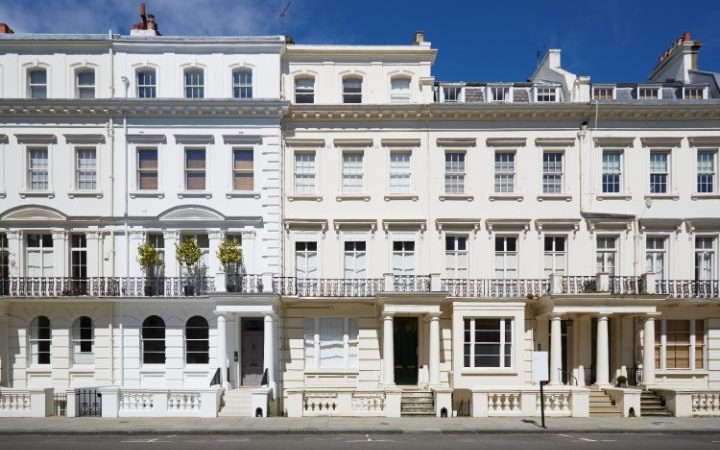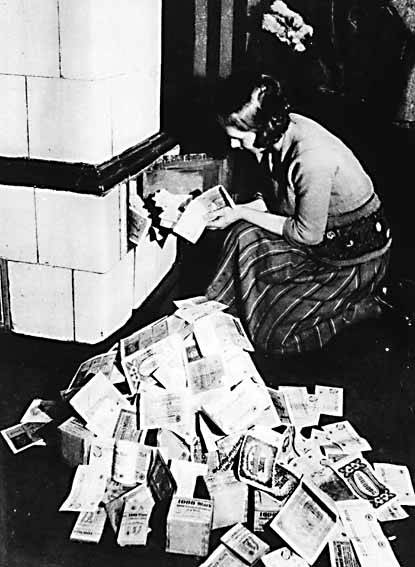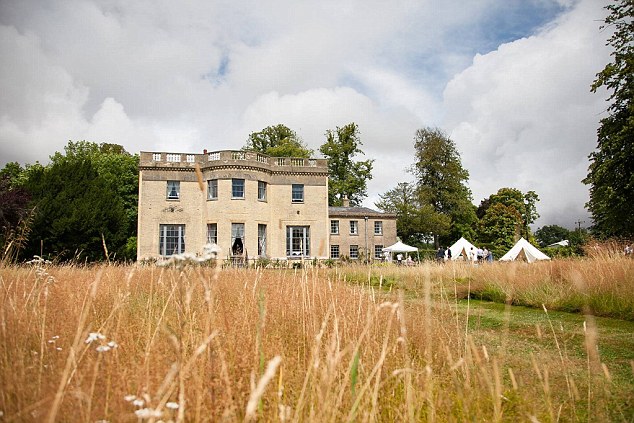635: Inflation and Property
02-25-2019
PropertyInvesting.net team
The Special Report focusses on one key topic - inflation - and described why property investors use inflation to make high returns. 
Inflation: We thought we should dedicate this report to inflation.
The Inflation Game: Investors throughout the world “play the inflation game” by borrowing money – then buying assets that then rise in price and their borrowing in real terms falls. At the end of the day – and it could be a 25 year term – with inflation running at around 3% the borrowing have been eroded to below half of what it was before. Meanwhile the asset prices will have doubled. Of course this game can spectacularly backfire if inflation is zero and asset prices fall – as they did in Japan from around 1990 to 2010. But in most fairly mature western economies – inflation runs at 1-4%. Borrowing costs might be 2% above inflation. The trick is to buy an asset that actually rises at greater than inflation over an extended period. This is certainly been the case with property in southern areas of the UK since around 1990. For instance a one bedroom flat in Fulham would have cost £60,000 in 1990 but is nor worth £400,000, a phenomenal rise. But in some areas like Bradford, a one bedroom flat in 1990 would have cost £20,000 and only be worth £40,000 now.
Politicians Like Inflation: One thing is for sure, successive governments be they Labour or Tory – like to see inflation running at 2% or possibly slightly more. This gives an illusion of growth – so wages rise, house prices rise and people feel li ke they are better off despite food, transport, goods and services prices rising sharply. This is particularly true of people that own physical assets like houses – and because of this – they are more likely to vote for those governments that generate some house price inflation. Because of this – if you don’t believe in inflation – you are betting against successive governments – and you are likely to be wrong and be making a bad call.
ke they are better off despite food, transport, goods and services prices rising sharply. This is particularly true of people that own physical assets like houses – and because of this – they are more likely to vote for those governments that generate some house price inflation. Because of this – if you don’t believe in inflation – you are betting against successive governments – and you are likely to be wrong and be making a bad call.
Population: As the population of most countries grows – this will lead to a certain level of growth in any case. But add a bit of inflation and shortages of homes, goods and services – and it creates an impression the economy is going in the right direction. It masks economic and social failings.
Exports Up With Weak Currency: Inflation can help keep a country competitive – by making exports more attractive and imports more expensive – it’s wise for government politicians to make sure your country’s currency is not too strong. This also creates inflation since imports are more expensive. So central banks will often keep interest rates low and print currency “out of thin air” – so called “q uantitative easing” to suppress the value of their currencies to keep the inflation on track – to create some inflation and prevent the dreaded deflation – again to create the illusion of growth. It’s the so called Keynesian economic model – of printing currency – creating a stimulus to stimulate growth and activity. It generally leads to very inefficient allocation of capital to projects – wasted money – often on prestige projects that don’t add any value – they destroy value. The opposite model is the “Austrian School of economics” – which would never print currency, would create a “non fiat” currency that is backed by physical gold – and would allow periods of inflation and deflation depending on the economic cycle. They call gold “real money” and currency is not described as money – particularly if it’s not backed by gold. Tories tend to be slightly more responsible, prudent and leaning towards the “Austrian” model. Labour and socialists will always go with Keynesian economics – printing currency – easy monetary policies that can be dangerous in that – if they get out of control, they can lead to hyperinflation - like in Venezuela at this time. In any case, they will eventually bankrupt a country through lose spending. When socialist governments get desperate, they will print currency that eventually makes it worthless.
uantitative easing” to suppress the value of their currencies to keep the inflation on track – to create some inflation and prevent the dreaded deflation – again to create the illusion of growth. It’s the so called Keynesian economic model – of printing currency – creating a stimulus to stimulate growth and activity. It generally leads to very inefficient allocation of capital to projects – wasted money – often on prestige projects that don’t add any value – they destroy value. The opposite model is the “Austrian School of economics” – which would never print currency, would create a “non fiat” currency that is backed by physical gold – and would allow periods of inflation and deflation depending on the economic cycle. They call gold “real money” and currency is not described as money – particularly if it’s not backed by gold. Tories tend to be slightly more responsible, prudent and leaning towards the “Austrian” model. Labour and socialists will always go with Keynesian economics – printing currency – easy monetary policies that can be dangerous in that – if they get out of control, they can lead to hyperinflation - like in Venezuela at this time. In any case, they will eventually bankrupt a country through lose spending. When socialist governments get desperate, they will print currency that eventually makes it worthless.
Inflation All The Way: We believe the chances of a prolonged period of deflation in the UK is minimal – because regardless of whether we have a Tory or a Labour government, we think both would want to create inflation quickly after any deflationary spike downwards. They can do this easily by simply printing huge quantities of electronic currency as they did in 2008 – in the UK, Europe and USA. They would also keep interest rates very low. Yes, the currency could decline sharply, but unless there was a collapse – which admittedly is possible with an extreme Labour government – then we would normally expect 2-3% inflation a year. If everything was equal – with supply meeting demand and stable policies and tax, then we would then expect house price to rise by a similar amount.
Inflation for Hundreds of Years: Over hundreds of years now – house prices have risen as the currency value has declined and wages have risen, We don’t think this is going to change. So for all the young people out there – long term – you need to play the inflation game. Just to give an example – about 200 years ago a hand tailored suit cost £10 – or one gold coin. Today it costs £1000 or one gold coin. Gold has stayed he same because it is a physical asset like property, but the currency has been devalued 100 times. This is why you need to protect your wealth by putting it into houses.
Property Owners: This brings us onto property. Of course the huge benefit of property is that you can borrow money against it – thereby leveraging up – and accelerating the possibility of making serious money. Of course, its not without its risks because property prices can drop sharply as well – and stay languishing for years – leading to negative equity – but longer term - there are few stories of people losing money in a 25 year time frame buying and owning property. Okay, affordability levels in many parts of the UK look stretched, but with the lack of homes being built and an expanding population – it’s difficult to envisage a property prices collapsing – as long as Labour don’t get into power. But even if they did, inflation under a Labour government would likely be significantly higher – general inflation at least –interest rates could rise, but its still possible property prices would rise because of a declining currency value, money printing and increase in public sector jobs – particularly in northern parts of the UK.
is that you can borrow money against it – thereby leveraging up – and accelerating the possibility of making serious money. Of course, its not without its risks because property prices can drop sharply as well – and stay languishing for years – leading to negative equity – but longer term - there are few stories of people losing money in a 25 year time frame buying and owning property. Okay, affordability levels in many parts of the UK look stretched, but with the lack of homes being built and an expanding population – it’s difficult to envisage a property prices collapsing – as long as Labour don’t get into power. But even if they did, inflation under a Labour government would likely be significantly higher – general inflation at least –interest rates could rise, but its still possible property prices would rise because of a declining currency value, money printing and increase in public sector jobs – particularly in northern parts of the UK.
Protect Your Wealth: Buy property should normally protect your wealth – since if you buy a home for £200,000 – you are actually buying a physical asset – that has a utility value – you can live in it, rent it out, upgrade it, extend it, split it up. But importantly – its not going to go anywhere. It can’t be stolen. It can’t be moved. You have legal title to it. It has bricks and mortar – is real and physical – like gold and silver. The central bankers can print a currency into oblivion – hyperinflate, but one house will always equal one house. This is why during the Weimer German hyperinflationary spiral of 1930 – the only people that economically survived were property owner – they still had their properties – and their borrowing levels went to zero – it was hyperinflated away.

Houses Don’t Deflate – They Stay The Same: A house also does not deflate in size. It can’t be duplicated by a Central Banker. It’s like Monopoly – in that you use cash to buy properties on roads – and sit on them. You will own the physical asset – unlike buying stocks and shares where you buy pieces of paper that might or might not be worth anything - companies can go bust any time and shares can crash within a few seconds. But houses don’t go anywhere – you can see them and feel them. What’s more you can’t borrow money to buy stocks and shares – so you can’t really leverage – if you do by spread betting/trading – it’s very dangerous and you definitely need to know what you are doing. You are betting rather than investing.
Who Has Made The Wealth: It’s also worth considering this – how many people do you know that have made significant wealth from property – the answer is almost everyone you meet that owns a property. Then think of the people you know that have made significant wealth out of investing in stocks and shares or companies or anything else for that matter – the answer is either hardly anyone or no-one. You might also know people that have “lost their shirts” during stock market crashes, or the dot-come crash. To put this into perspective, the overall wealth tied up in the UK in property is around £3.5 Trillion.
stocks and shares or companies or anything else for that matter – the answer is either hardly anyone or no-one. You might also know people that have “lost their shirts” during stock market crashes, or the dot-come crash. To put this into perspective, the overall wealth tied up in the UK in property is around £3.5 Trillion.
Millennials – Try and Buy As Soon as Possible: The new generation, born around the Millennium - seem less interested in the stock market and indeed owning properties than their parents. They seem to be more interested in going on special holidays, adrenaline filled experiences, developing their Facebook profiles, Instagram photo opportunities and complaining about how they will never be able to afford to buy a property – so why should they bother. Our steer is that – in 50 years time – the only wealthy people will be those that own properties – and the rent paying people that don’t ever bother to try and buy a property will be poor – they might still go on nice holidays but they will be struggling with no assets – no wealth – and no financial security. They will be at the whim of Landlords. For younger people – we can try and understand how frustrating it is to look priced out of a market – but this is not new – for many periods it has been very difficult to buy a home – it needs people to save – often for prolonged periods. It means not going on holiday. Not having that Instagram photo experience – it means being a bit humble and lookin g to the long term, and being patient. It’s just that many people aren’t really capable of seriously saving any money or seeking out property buying opportunities and raising funding from banks.
g to the long term, and being patient. It’s just that many people aren’t really capable of seriously saving any money or seeking out property buying opportunities and raising funding from banks.
Low Quality Jobs: Of course the lack of proper salaried jobs does not help young people these days – along with zero hours contracts and lack of secure tenure – so this makes it difficult for many young people to get a mortgage – but if you can get any sort of secure job – or are self employed and keep good accounts – to raise money from the banks – then you have a good chance of buying a property. Just to flag if you get a two double bedroomed flat, you can rent a room for £400-£500/month that in northern England would pay for the mortgage. In London it might pay for half of the mortgage. It will certainly help you financially – and you can save for a larger property. It just needs the will and stamina to save aggressively – and once you have a lodger – and this can be a friend of course – you will be starting on the property ladder and it will become so much easier. So our advice is – try and go for a slightly cheaper area though with reasonable rental demand and buy a 2 or even 3 bedroomed flat or house and get one or two lodgers. It will have a phenomenally economic impact on your life 0- just do the calculations.
We hope this special report has help you frame your property investment strategy - if you have any comments or queries please do not hesitate to contact us on

